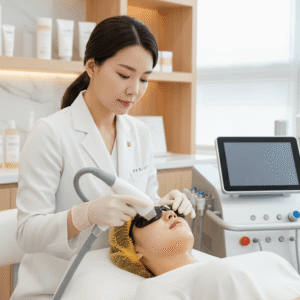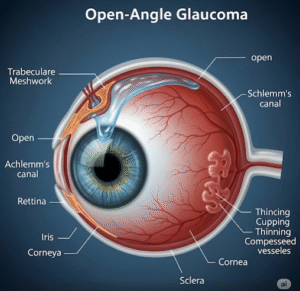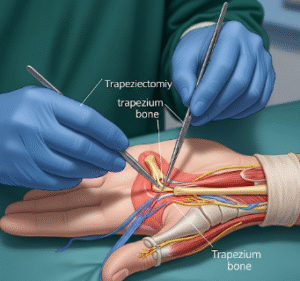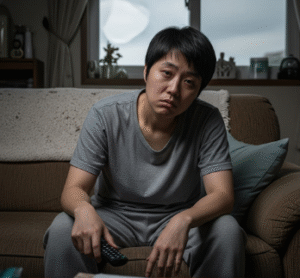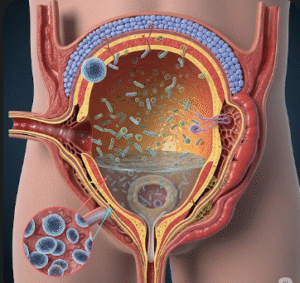Overview
Bulimia Nervosa is a serious eating disorder characterized by recurrent episodes of binge eating followed by compensatory behaviors such as vomiting, excessive exercise, or misuse of laxatives. The disorder is often associated with a preoccupation with body weight and shape, leading to significant physical, psychological, and social consequences.
In Korea, bulimia nervosa is increasingly recognized as a major mental health issue, with patients treated in psychiatric clinics, specialized eating disorder centers, and general hospitals. Korean healthcare emphasizes early diagnosis, multidisciplinary treatment, and long-term support to address both the mental and physical aspects of the disorder.
What is Bulimia Nervosa?
Bulimia Nervosa is a complex psychiatric condition involving:
- Binge eating episodes, where an individual consumes a large amount of food in a short period, often accompanied by feelings of loss of control
- Compensatory behaviors to prevent weight gain, such as self-induced vomiting, misuse of laxatives, diuretics, or enemas, and excessive exercise
- Persistent concern about body weight or shape, driving the cycle of bingeing and purging
The disorder may occur sporadically or chronically and can affect adolescents, young adults, and occasionally older individuals, with a higher prevalence among females.
Symptoms
Bulimia Nervosa presents with both physical and psychological symptoms:
Physical Symptoms:
- Frequent binge eating episodes, often in secret
- Self-induced vomiting or laxative misuse
- Swelling of cheeks or jawline due to salivary gland enlargement
- Erosion of tooth enamel and dental cavities
- Sore throat, hoarseness, or chronic cough
- Gastrointestinal issues, including bloating, constipation, or acid reflux
- Electrolyte imbalances, potentially causing heart irregularities or weakness
Psychological Symptoms:
- Preoccupation with body image and weight
- Feelings of guilt, shame, or depression after binge episodes
- Anxiety and social withdrawal
- Mood swings and irritability
Causes
Bulimia Nervosa arises from a combination of biological, psychological, and environmental factors:
- Genetic predisposition, as eating disorders often run in families
- Neurobiological factors, including irregularities in neurotransmitters like serotonin
- Psychological traits, such as perfectionism, low self-esteem, or impulsivity
- Cultural and societal pressures, including media portrayal of ideal body image
- Trauma or stressful life events, such as abuse or major life changes
- Family dynamics, including overemphasis on weight or appearance
Risk Factors
- Female sex, though males are also affected
- Adolescence and young adulthood, particularly ages 15–25
- Family history of eating disorders, depression, or anxiety
- Cultural emphasis on thinness and beauty standards
- Perfectionist personality traits
- History of dieting or weight fluctuation
- Stressful life experiences or trauma
Complications
Bulimia Nervosa can lead to severe physical and mental health complications:
Physical Complications:
- Electrolyte imbalances, increasing the risk of heart arrhythmias and sudden cardiac death
- Gastrointestinal damage, including esophageal tears, gastritis, and constipation
- Dental erosion and cavities due to stomach acid
- Swollen salivary glands and facial puffiness
- Chronic sore throat and hoarseness
- Muscle weakness and fatigue
- Amenorrhea or irregular menstrual cycles in females
Psychological Complications:
- Depression, anxiety, and mood disorders
- Substance abuse in some patients
- Social isolation and strained relationships
- Suicidal ideation or attempts in severe cases
Prevention
Prevention strategies focus on promoting healthy eating habits, self-esteem, and mental well-being:
- Education on balanced nutrition and body image awareness
- Encouraging healthy coping mechanisms for stress and emotional challenges
- Early intervention in adolescents displaying disordered eating behaviors
- Parental and community support to reduce societal pressure regarding appearance
- Professional screening and counseling for at-risk individuals
- Promotion of physical activities focused on health rather than appearance
Treatment Options in Korea
Diagnosis
Diagnosis involves clinical evaluation, patient history, and psychological assessment:
- Detailed medical history, including frequency and severity of bingeing and purging behaviors
- Physical examination, focusing on signs of malnutrition, dental erosion, and gastrointestinal issues
- Laboratory tests to check for electrolyte imbalances, kidney function, and other complications
- Psychiatric assessment using standardized diagnostic criteria from the DSM-5
- Screening for comorbid conditions, including depression, anxiety, or substance use
Medical and Psychological Management
Treatment is multidisciplinary, addressing both physical and mental health:
- Cognitive Behavioral Therapy (CBT), the most effective psychotherapy for bulimia
- Interpersonal Therapy (IPT) to address relational issues contributing to disordered eating
- Family-Based Therapy (FBT), particularly for adolescents
- Medications, including selective serotonin reuptake inhibitors (SSRIs) to reduce binge-purge cycles and treat coexisting depression or anxiety
- Nutritional counseling for establishing balanced eating habits and correcting deficiencies
- Medical management of complications, including electrolyte correction, dental care, and gastrointestinal treatment
Supportive Care
- Group therapy and peer support for shared experiences and motivation
- Stress management techniques, including mindfulness, meditation, and relaxation exercises
- Continuous monitoring and follow-up to prevent relapse
- Education for patients and families about recognizing early warning signs
Prognosis
With early intervention and comprehensive treatment, the prognosis for Bulimia Nervosa can be favorable:
- Many patients achieve significant improvement in bingeing and purging behaviors
- Long-term recovery may require ongoing psychological support
- Relapse is common, emphasizing the importance of follow-up care and coping strategies
- In Korea, specialized eating disorder centers provide a structured environment for therapy, nutritional guidance, and medical monitoring, improving outcomes and reducing complications
With multidisciplinary care, psychological support, and lifestyle management, individuals with Bulimia Nervosa in Korea can recover, regain physical and mental health, and improve their quality of life.


